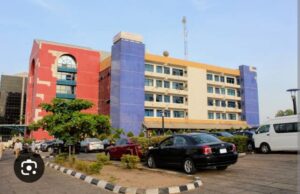

By Ahmed Muazu.

The National Hajj Commission of Nigeria (NAHCON), celebrated as a model for African Hajj operations, is now at the center of national scrutiny. Allegations of financial mismanagement against some of its past leadership has led to growing public distrust, placing the commission under an uncomfortable spotlight.
The dismissal of Malam Jalal Arabi as Chairman/CEO of NAHCON marked a significant turning point in the commission’s history.
For an organization that is 18 years old since it’s formation and tasked with coordinating the journey of 95,000 Nigerians to the hajj, navigating challenges is not an unfamiliar territory. However, recent allegations and investigations have placed NAHCON at the center of a swirling controversy what some have termed “a storm of accountability.” Critics have raised questions about transparency, resource management, and the efficacy of its operations. But amidst the turbulence, NAHCON has chosen to confront its detractors not with rhetoric but with facts and actions.
By overseeing the delicate balance of logistics, welfare, and diplomacy required to ensure a seamless pilgrimage each year, the commission has consistently striven to elevate the Nigerian Hajj experience. From securing optimal accommodations to negotiating favorable airfare rates and facilitating pre-departure services, it remains dedicated to enhancing the journey for every pilgrim.
In the face of growing frustration against some of its policies by stakeholders, coupled with the rising / fluctuating forex, alongside Saudi policies, NAHCON has tried to implement series of reforms over the years with an evidence- based approach on policies inline with global best practices. These have clearly placed the commission in the forefront of global hajj management. Yet, these strides have not shielded it from criticism.
The Hajj industry in Nigeria has metamorphosed from what it was in 60’s and the 80’s , evolving into the modern management system we witness today. While there is still a considerable journey toward achieving a seamless and optimized Hajj experience, significant progress has been made.
We have moved from days when pilgrims were in the pit of despair during different stages of the operations to an era where we can confidently attest that NAHCON has fundamentally changed the game for its primary constituency.
As the Commission undergoes this period of scrutiny, it faces a dual challenge: regaining public trust and continuing to deliver on its mandate.
Malam Arabi’s tenure, though marked by some progress, the accusations surrounding the so-called mismanagement of a ₦90 billion subsidy intended to replace the forex subsidy costed him his job.
Under the leadership of Prof. Abdullahi Sale, a wave of reforms is reshaping the commission, reflecting a commitment to rebuilding public trust and bolstering operational efficiency. Central to these efforts is the appointment of external auditors to scrutinize the commission’s finances, a move poised to guide critical forthcoming decisions. Prof. Sale has also prioritized reconciliation, reaching out to service providers, state pilgrims’ boards, and tour operators in a bid to foster transparency and elevate service standards.
Sale’s approach has been described as both proactive and conciliatory.
A heavy anchor has been placed on the commission as ongoing investigations hinder its ability to set goals and prepare for the 2025 Hajj. This issue, largely overlooked in public discourse, misses the broader context of logistical enormity and political sensitivity involved in coordinating the pilgrimage. The potential fallout could impose greater hardship on the average Nigerian pilgrim, especially as tent spaces in Mina are increasingly being occupied by countries that have proactively engaged with Saudi Arabian authorities.
Confronting this pivotal moment, NAHCON is not merely responding to accusations but reaffirming its fundamental mission. Recent initiatives highlight the commission’s resilience, signaling renewed hope and optimism for enhanced efficiency and integrity.
Laying the groundwork for long-term stability and accountability. With billions of naira and the trust of millions at stake, the task is daunting but not insurmountable.
For pilgrims, NAHCON remains a vital institution, a lifeline that turns the dream of Hajj into reality. One believes that the coming months will showcase the commission’s resilience, vision, and ability to rise above challenges.
Ahmad writes from NAHCON


